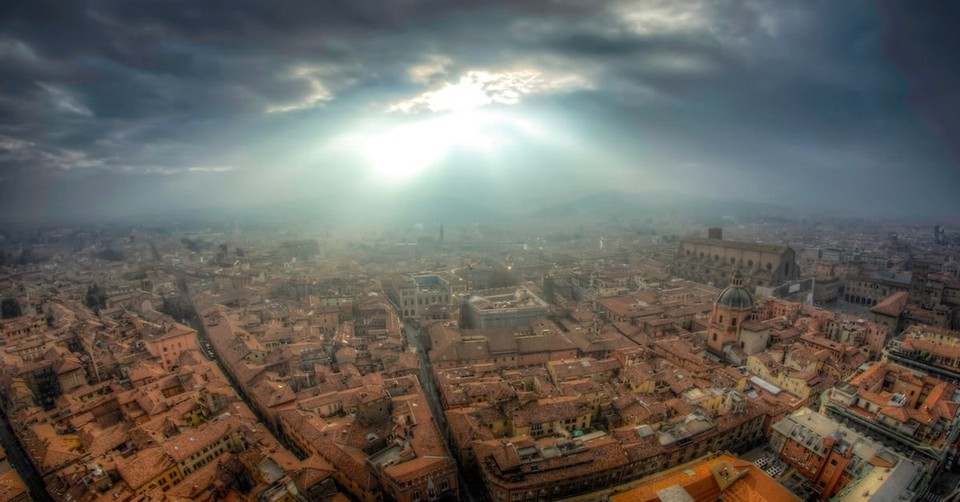4 Honest Questions about the Millennial Kingdom

The Millennial Kingdom, if it’s depiction in Scripture is to be taken literally, is a strange place indeed. More accurately, it’s what God has always intended to be the standard of “normal” (Genesis 1-2; Revelations 19-21), while the way we now exist is abnormal, unnatural, and twisted by the fall and resultant curse (Genesis 3 ff).
Just as a thornless thorn tree is an oxymoron for us, a world without Satan on the loose seems like sic-fi Utopia.
Every one of the various camps approaches the debate presuppositions in tow, which can tempt even a pious seminoid to allow his eschatology to degenerate into scatology. Each camp possesses its air-tight arguments, as well as its hidden leaky cracks. When debate falls into each side battering at the other side’s weak points, and no one is probing to understand, the verdict is an inevitable stalemate.
I have many Amill friends (yes Facebook lets you ‘friend’ them, and so does God). When we take a break from tongue-in-cheek amiable jousting, to really try understand each other, these are the four honest questions they have for me concerning the Millennial Kingdom and end times Bible prophecy…
1. How can it be that glorified and mortal people live together in the Millennial Kingdom?
This is a genuine concern and a reasonable question. It stems from the Premillennial notion that resurrected believers will rule in the Millennial Kingdom with Jesus (Revelations 20:6), while simultaneously mortal people are still living in the land, having babies (Isaiah 65:20), growing vineyards (Isaiah 65:21), and disarming their weaponry (Micah 4:3).
So you have mortal humans and immortal, glorified saints, coexisting on planet earth. [Insert an honest ‘Huh?’ here]. It does seem alien to us at first. One uncharitable Amill commentator calls it a “mongrel state of affairs.” But with a little thought, is it really so far fetched?
-The world didn’t unravel when the glorified Elijah and glorified Moses, joined the Transfigured Jesus in Matthew 17. Peter wasn’t appalled by the mongrel state of affairs; he wanted to set up camp.
-Genesis 6 talks about fallen angles integrating into human society. Though the travesty of copulation was dealt with severely by God, the possibility of a world where mortals and immortals coexist certainly has a precedent in Scripture.
-And let us not forget that in a sense we already live this way, though our experience of it is different. Angles are glorified immortal beings who can live in our world invisibly (as Elisha knew when he took confidence in the army of angels protecting him in 2 Kings 6). And angels are even able to have meal with mortals on earth right now (As Abraham found out in Genesis 18, and we are explicitly informed of in Hebrews 13:2).
2. How do people get saved in the Tribulation since all the believers are removed at Rapture?
This is an apparent inconstancy in the pre-tribulational rapture view. You see, since the prophecies predict widespread conversion during the seven years of tribulation there must be some sort of witness. But since believers are removed at the beginning of the tribulation, how is the lost world evangelized?
But again, some careful consideration melts this apparent inconsistency.
Even now, not every conversion happens in the physical presence of a believer. Initially Bibles, tracts, blog posts on the internet, and churched unbelievers are just a few of the many sources of the gospel available to the unbelieving population of earth. And due to these sources, there will be a growing armada of new believers to become witnesses and even an angel commissioned to preach the gospel (Revelations 14:6).
3. How can there be rebels in the Kingdom if only believers enter?
Sam Storms (Amill) picked on this point in the “Evening of Eschatology” debate moderated by John Piper.
Piper chimed in on the debate he had been objectively moderating, by suggesting one possible solution: babies. The children born to those mortal believers who survive the tribulation and who enter the kingdom, will be born with Adam’s sin nature. Those born in the Millennial Kingdom will still need to repent of sin and accept Christ to be saved. And some will not do so. Remember this is not heaven, it is still earth. There are changes, but there is still sin and death (Isaiah 65:20).
4. How can there be rebelling unbelievers in the Kingdom if Jesus is physically present?
I’ve been asked this a number of times by friends who can’t fathom how, with Jesus on the throne in Jerusalem, there could ever be a rebellion as per the prediction in Revelation 20:7-8. How can there be unbelievers, after Jesus has returned to earth? Surely the return convinces everyone?
Again, a good question.
As remarkable as it is, this phenomenon is not unprecedented. Did Satan and the angels not rebel in heaven, while in the very presence of Jesus? Did Adam and Even not choose rebellion over the fellowship of their Maker who walked in the cool of the garden with them? Did not Judas rebel against his Lord after three years of first-hand witnessing of his deity in his very presence? Is it really that far fetched to think there will be people on earth who refuse to bow the knee to Jesus, though they can see evidence of his existence?
Does this make sense to you, or is does it sound a bit far fetched? Leave a comment to join the discussion.
This post was originally published on The Cripplegate. You can view the original here. Used with permission.
Clint Archer (MDiv, ThM, DMin) has been the pastor of Hillcrest Baptist Church since 2005. He's the author of several books, and lives in Durban, South Africa with his wife and four kids.
Photo courtesy: Ddmitry Sytnik on Unsplash
Originally published June 07, 2018.







